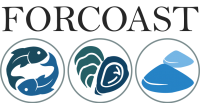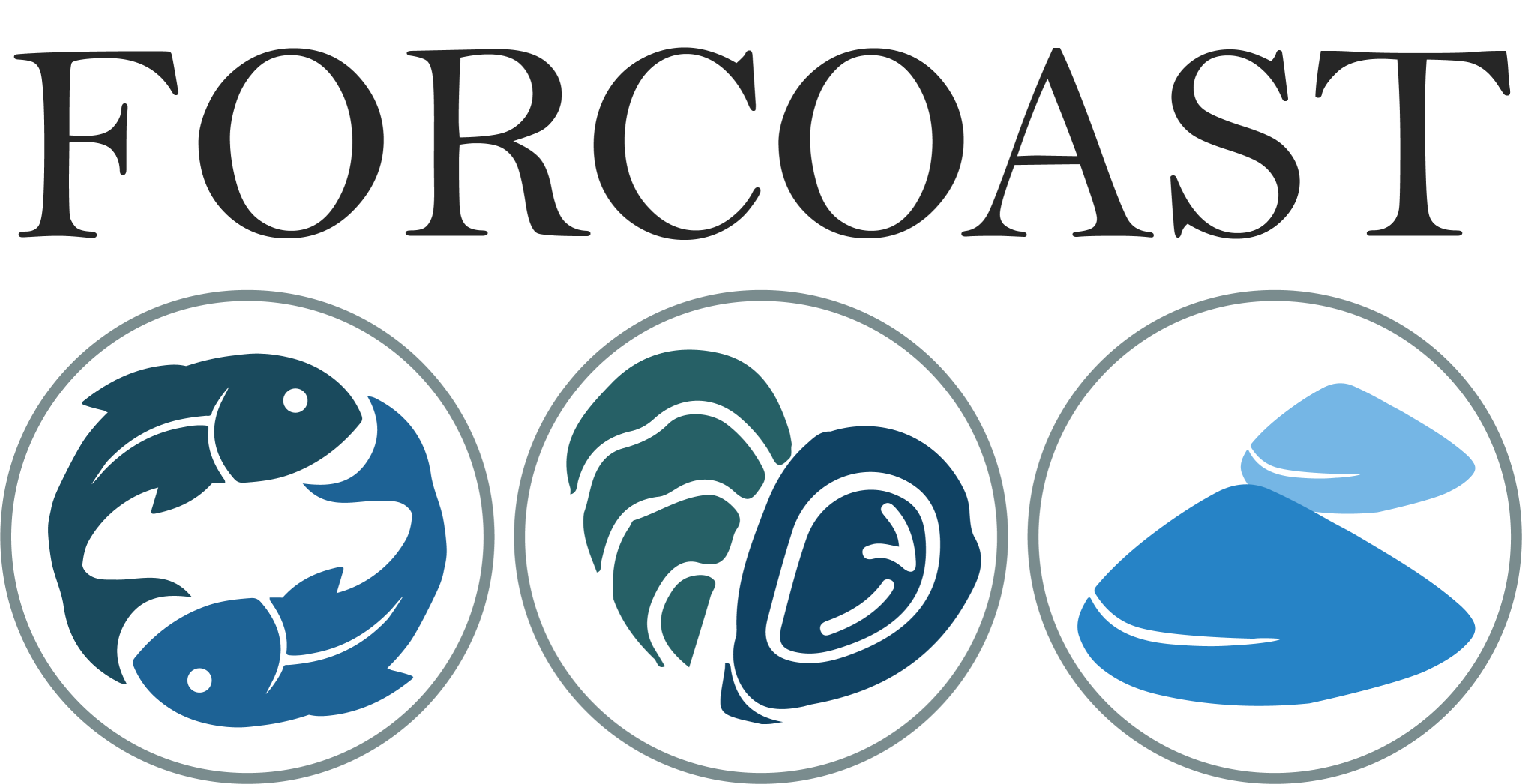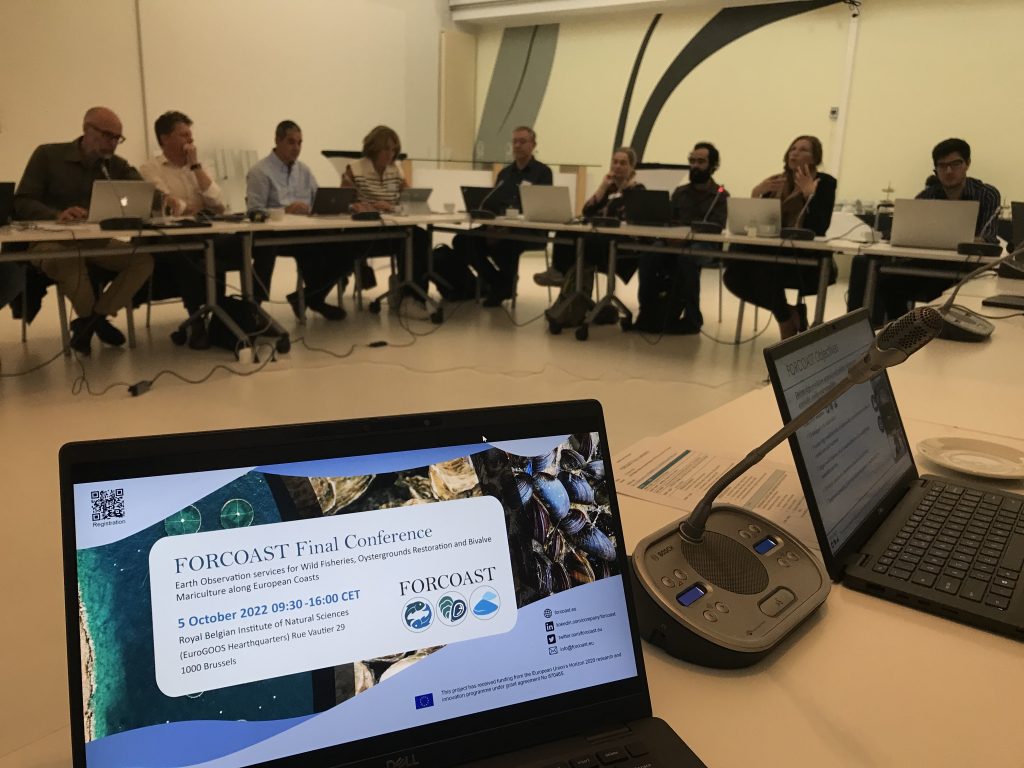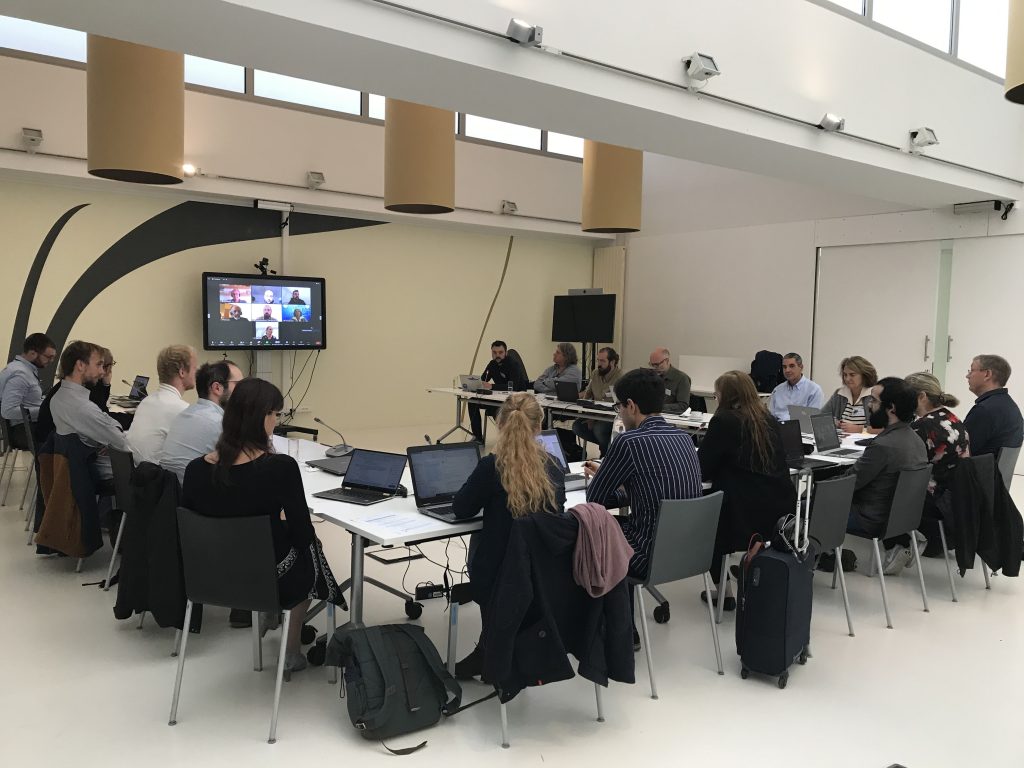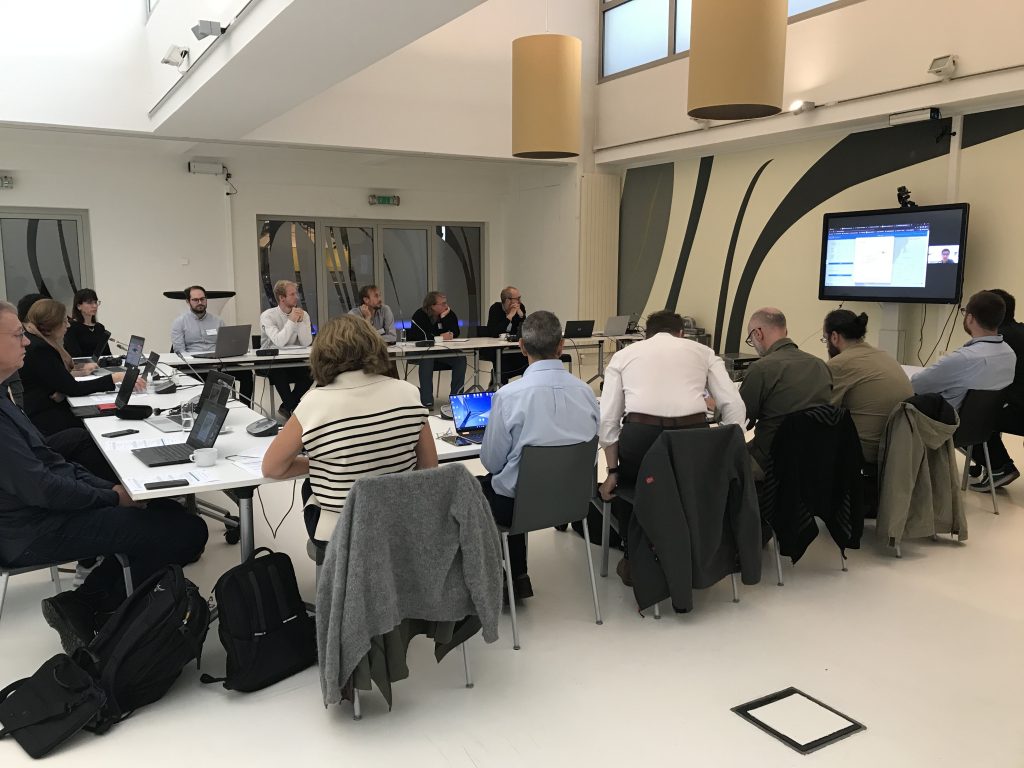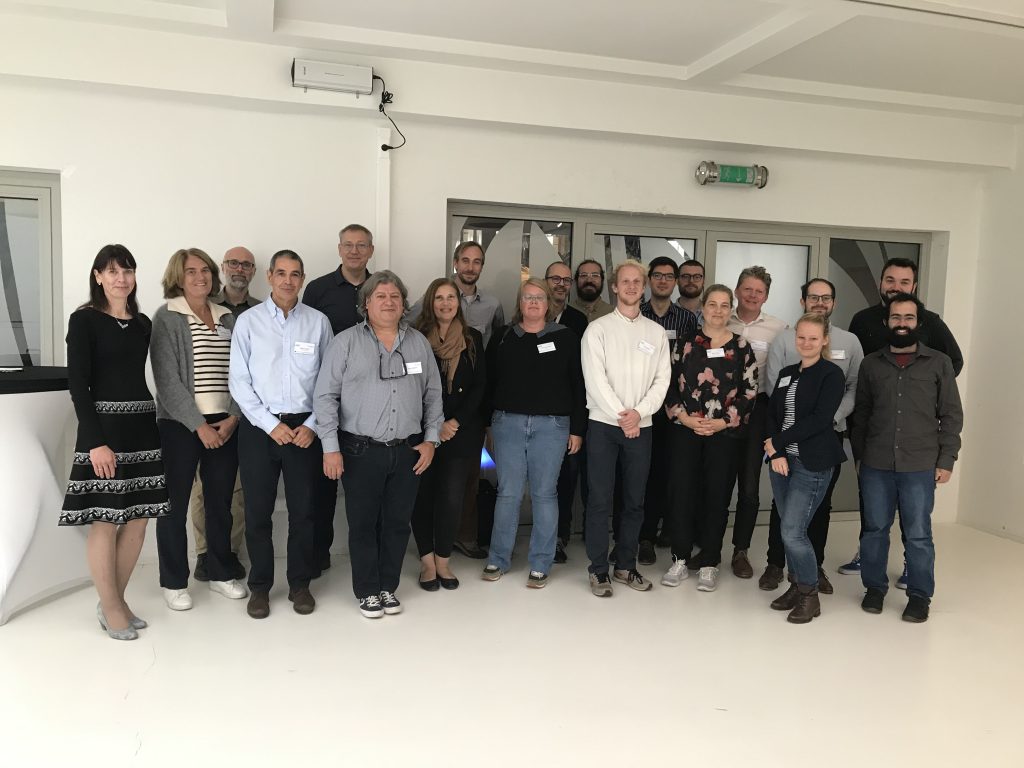Last Wednesday (5th October 2022) the final FORCOAST conference was held. It was hosted by EuroGOOS in the Museum of Natural Sciences in Brussels. Over 20 people represented the different target sectors of wild fishery, bivalve aquaculture and oysterground restoration. Attendees were able to join the conference in person, amongst which were partners, and stakeholders from industry and research institutions, including the external advisory board. Due to the hybrid setting of the meeting, several others were also able to join the meeting online.
The conference opened with a statement from a representative from the Directorate-General for Maritime Affairs and Fisheries on the need of the fishery and aquaculture communities for the provision of tailor-made services to the sectors. This makes the FORCOAST-developed services a perfect fit for the prospect of a collaborative way to embed this type of services to enable a wider scope for growth and benefits.
In the first part of the conference, FORCOAST highlights were presented, followed by a demonstration of the functionalities of the FORCOAST platform prototype. The various services that the FORCOAST platform offers were illustrated by their respective developers, including a discussion with the participants of the conference. That allowed for insights into potential market uptake and service evolution to be considered by the consortium in the near future.
In the second part of the conference, the legacy of FORCOAST was discussed with panellists representing core services and global initiatives including market-oriented entities. The first panel discussion focused on the stakeholder vision and the market uptake. Four representatives from the industry and three partner were present. Everyone concurred on the value of the services in general or in their specific sector, and the importance of feedback, accountability and validation of the services were highlighted. The panellists have agreed that getting people acquainted with the services and gaining trust will be key to successfully disseminating the services.
The second panel discussion focused on the wider communities’ uptake and global upscaling. The panellists included five representatives from organizations hosting upstream services such as Copernicus, GEO Blue Planet and European Aquaculture Technology & Innovation Platform (EATiP). They appreciated the fact that FORCOAST offers user-driven services that are information products tailored to specific user needs rather than basic data products. The panellists also highlighted the relevance of the FORCOAST service catalogue to the target sector users, enhancing their operability and allowing them to have easy access to the available upstream spatial and temporal domains. Furthermore, the use of citizen science for further service evolution was also suggested.
In conclusion, the interactive structure of the final conference enabled lively discussion on all aspects of the FORCOAST project and gave additional insights into the finalisation and envisioning ways towards the future.
